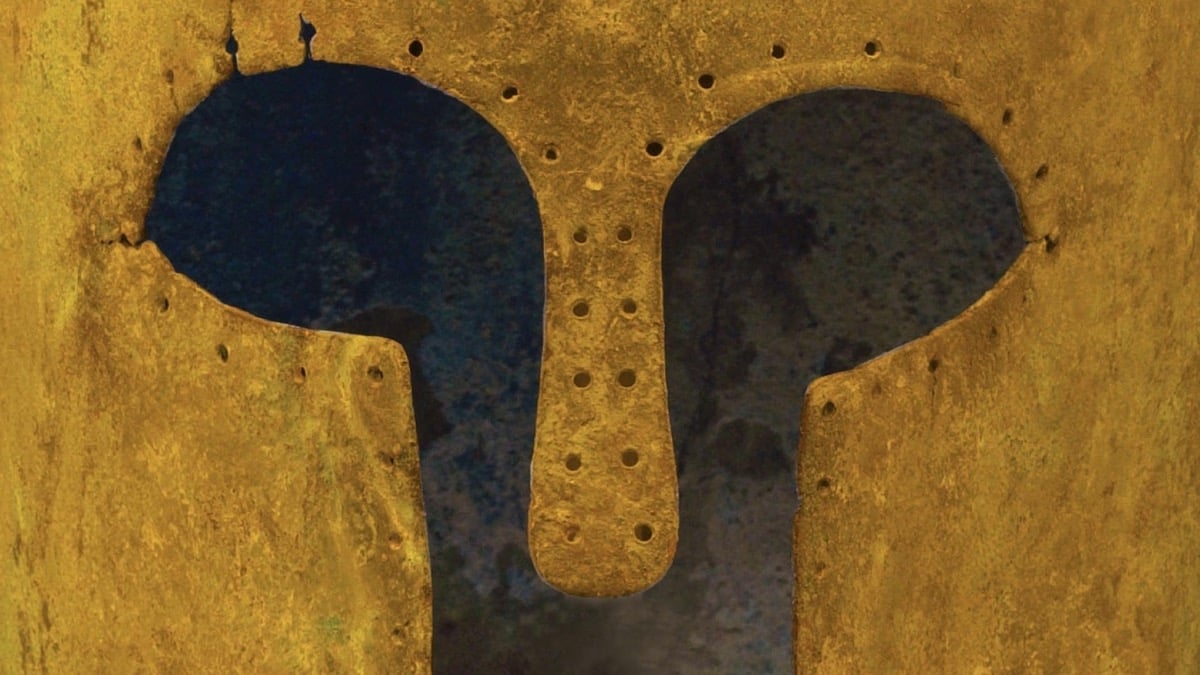
The Greeks. The OG myth makers. It’s impossible to overstate the influence that these fabled storytellers had on well, storytelling. Through tragic dramas, titanic poems, and word of mouth tales, the ancient Greeks were able to create a tapestry of legends that has draped itself over the imagination of the world. Their pantheons and parables are still beloved by modern minds, long the their ancient authors’ bones turned to dust. We all know a great Greek tale or two – here are some of the greatest, the 1o best Greek mythology fantasy books.
Song of Achilles

The master of the modern Greek myth, Madeline Miller has carved out a New York Times bestselling reputation for herself as one of the strongest voices in the genre. Her debut novel Song of Achilles is a work of epic poetry that would surely bring a tear to Homer’s eye. The story is a reimagining of The Iliad, and expands upon the romantic relationship between Achilles and his lover Patroclus. The pair become fast friends as boys, fall in love as teens, and meet their fates together in the fires of the Trojan war. It’s a gut punch of a novel that will have you sobbing for the last 50 pages, but the honey sweet prose will serve as a salve for the wound. Or it’ll just rub salt in it. Like the best of Greek tragedy, this novel hurts.
Percy Jackson and the Olympians
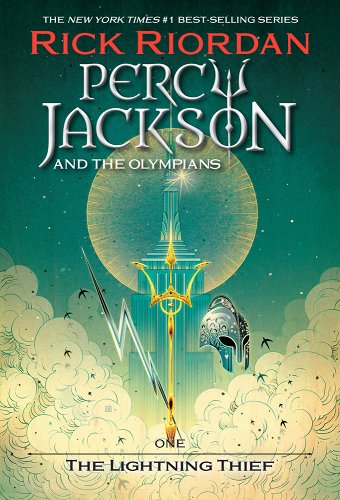
When this series first hit the shelves, Rick Riordan’s Percy Jackson and The Olympians held pop culture in a chokehold tighter than the Gordian knot. This teen-friendly first novel revolves around titular divine neobaby Percy, and his quest to defeat his godly parent’s ancient enemies. Percy is a demigod, and is sent to Camp Halfblood in New York to hone his supernatural gifts alongside other young godlings. It’s basically a prep school for magical children, which is good, because they’re gonna need all the preparation they can get. The Titans are coming, and they sure know how to hold a grudge – in the way that only a member of the pantheon can.
A Thousand Ships
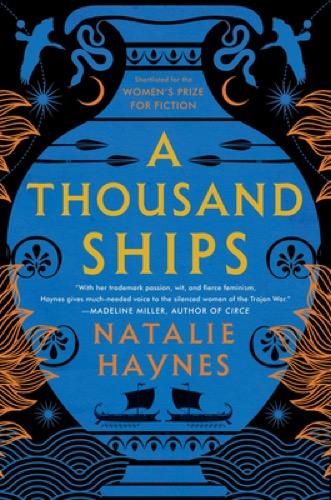
A Thousand Ships by Natalie Haynes is a retelling of the Trojan War from the perspective of the women who witnessed it. While The Iliad‘s war was famously fought for a woman, Helen of Troy takes a sideline role in order to make room for the men’s military drama. Not so in A Thousand Ships! The women’s struggle is spotlighted by the muse Calliope, and features commentary from both the mortal and the divine characters involved. One of the most heartbreaking stories is that of Iphigenia, who was sacrificed by her father Agamemnon in order to gain divine favor – Phiggy has a few choice words for him.
Til We Have Faces
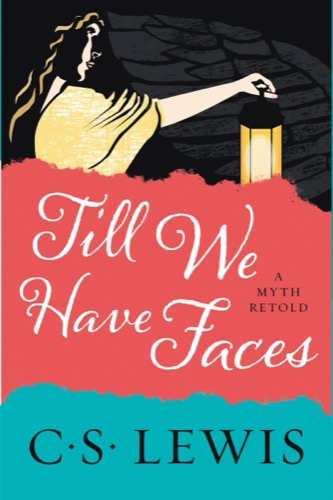
Did you know that the guy who wrote The Chronicles of Narnia also tried his hand at Greek fanfics? Now you do! Til We Have Faces by C.S. Lewis is a retelling of the myth of Cupid and Psyche, written as a tag team authorial effort with his wife Helen Joy Davidman. The novel is about the beautiful princess Psyche, who got on Venus’s bad side simply for being too pretty (classic Greek god pettiness). Venus sends Cupid (wings and love arrows guy) to make Psyche fall in love with something ugly as punishment, but after Cupid accidentally nicks himself with a shaft, he falls for Psyche himself. Naturally, this only ends up complicating things for Psyche, but as Lewis’ novel works itself out, the meddling of the gods actually makes her life better in the end! Shocker, right?
Circe

While I generally try not to double dip by putting the same author twice on a list, Madeline Miller’s literary brilliance requires me to make an exception to the rule. Her sophomore novel Circe trades human drama for the divine, and centers around the titular daughter of Helios. After taking revenge against another goddess (who kinda deserved it) Circe is banished from the realm of the gods to live alone on a deserted island. With nothing but time on her immortal hands, Circe begins dabbling in the lost art of witchcraft – tending the island’s plants to create potions, and using Greek sailors as guinea pigs for her transformation spells (by turning them into regular pigs). Circe is a Bildungsroman about a young (by divine standards) woman attempting to find her place in a chaotic, tragic, and beautiful world.
The Just City
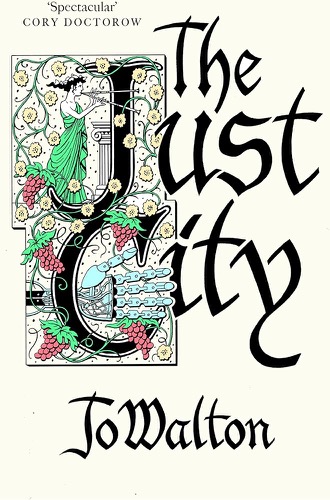
Back in the ancient days, the great Greek thinker Plato wrote a book called Republic that outlined his ideas about what constitutes an ideal society. While Plato’s utopia sounds boring by modern standards (really Plato? no gay clubs?) the ancient Greek gods in Jo Walton’s The Just Republic thought it sounded like a pretty good idea. In order to prove Plato’s thesis, Apollo and Athena gather 10,000 children and stick them together on an island to be raised by the greatest minds throughout history, who were plucked from the timestream and planted there themselves. As one would expect, the realities Plato’s dream society turn out to be far from ideal. The place slowly begins to fall apart after Socrates shows up to do what he did best – take a big old intellectual sh*t in the establishment’s ideological cornflakes.
The Odyssey

While modern retellings of Greek myths can be sweet as ambrosia, sometimes truly divine flavor can only be found by sipping from the ancient cup from which they flowed. In a world of satyrs, Homer was the GOAT. He’s arguably the finest Greek mythmaker in history, and his sweeping epic The Odyssey proves why. It’s the post-Iliad story of Greek sailor Odysseus and long journey home, which was complicated after his crew opened up a magical bag of winds that blew their ship hundreds of leagues off course. Odysseus has to wind his way through the treacherous waters of the archipelago, which are populated by man-eating cyclopses, ship drowning whirlpools, and a witch with a penchant for turning men into pigs (shoutout Circe). It’s the ultimate adventure story, one that has captured human imagination millennia after it was first composed. A certified Classic, in the academic sense.
Ariadne
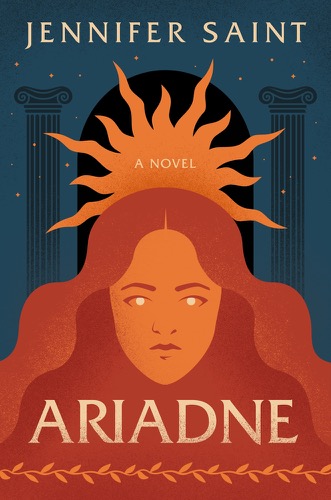
Greek princes Ariadne lived a semi-charmed life. She was born into the lap of luxury and spends her halcyon days learning to dance, but she also had to deal with the fact that there’s a man-eating minotaur living in the labyrinth underneath the floorboards. Jennifer Saint’s Aridane is the story of a woman hanging by a thread, who then uses that thread to lead Greek hero Theseus through the aforementioned maze to slay the aforementioned man-cow therein. Like Madeline Miller’s Circe, the novel centers itself around a woman who was historically relegated to be a side character in a man’s story. Speaking of men, she really can do better than Theseus. No matter how beautifully the novel’s prose describes him, he’s still kind of a dick. Lucky for her, the gods have good things in store (rare for a Greek myth, I know).
Soldier of The Mist

Soldier of The Mist by Gene Wolfe eschews familiar Greek myths to tell the tale of a totally original character, the amnesiac mercenary Latro. After a head injury rendered him unable to recall his past or create new memories of the present, Latro wanders through the Greek islands (or maybe just in circles, he’d never know) seeking to return home – Odyssey style. Throughout his travels through the land, Latro bumps elbows with demigods and divinities alike – whose supernatural visages he’s able to perceive as an unexpected perk of his altered state of consciousness. As the novel progresses, we find out why Latro’s brain continually does him dirty. Like in every Greek story, the dirty doings of gods caused all the trouble in the first place.
The Penelopiad
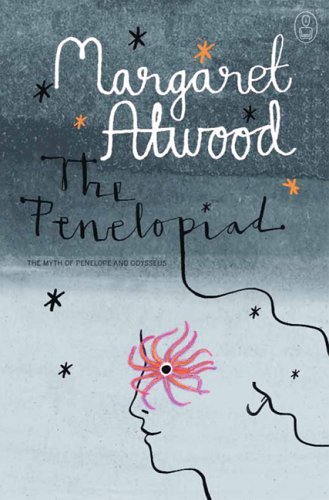
Penned by literary hall of famer Margaret Atwood, The Penelopiad is a retelling of The Odyssey from the perspective of Penelope, wife of the Greek sailor Odysseus. While Odysseus is off cheating with witches and trying not to get eaten by sea monsters during his galavant across the ocean, Penelope is at home on Ithaca… along with her bajillion suitors. Like flies to Greek yogurt, Lotharios from all across the archipelago are now swarming all over Penelope – demanding her hand in marriage. Odysseus comes back and murders the suitors, along with twelve of Penelope’s maids for their “disloyalty” for allowing the suitors inside. The novella reframes Odysseus’ act of “justice” as one of stark brutality, and centers its haunting narrative around those that the famed hero left behind.
(Featured Image: Ecco Press)
Have a tip we should know? [email protected]







